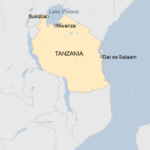
Chinese leader Xi Jinping’s sweeping concentration of power at last month’s 20th party congress has bolstered his position ahead of a possible meeting with US President Joe Biden, but it may not augur well for the increasingly adversarial US-China competition, observers said.
Over the past week, both leaders and their top diplomats have been striking a conciliatory tone and stressing the need to keep communication lines open, fuelling speculation that their much-anticipated meeting will happen during the Group of 20 summit in Bali from November 15.
Beijing has yet to officially confirm either Xi’s attendance at the summit or a meeting with Biden, who will be in Bali from November 13 to 16. The two leaders have spoken and met virtually several times in the past 20 months and in July agreed to explore the possibility of a face-to-face meeting.
Do you have questions about the biggest topics and trends from around the world? Get the answers with SCMP Knowledge, our new platform of curated content with explainers, FAQs, analyses and infographics brought to you by our award-winning team.
US National Security Council spokesman John Kirby confirmed last week that teams from both sides were working to arrange the possible meeting. “There’s an awful lot of issues for us to talk to China about. Some issues are fairly contentious and some should be collaborative,” he said.
The face-to-face meeting would be the pair’s first since Biden took office in January 2021 and could usher in a spell of detente between the rival powers, after months of rancorous feuds over Taiwan, human rights and export controls on microchips.
But any detente may not last long, with pundits predicting that Xi’s tightening grip on China’s ruling Communist Party could alarm and even galvanise the China hawks in Washington, just as the Biden administration could be weakened by the looming midterm elections.
Polls show Democrats at risk of losing one or both chambers of Congress in the midterm elections on November 8.
“With more power concentrated in him now, Xi will appear more confident when meeting with foreign leaders. Biden, already weak, is likely to be a lame duck after the midterm elections,” said Zhiqun Zhu, a professor of international relations at Bucknell University.
“While both leaders want to avoid confrontation, they are not on the same wavelength.”
Soon after beginning his unprecedented third leadership term, in a message to the National Committee on US-China Relations’ annual gala, Xi said better communication between the two countries would bolster global peace and development.
China was “ready to work with the US to find the right way to get along with each other in the new era”, Xi said.
In his own message to the gathering, Biden – whose national security strategy released last week calls China “the most consequential geopolitical challenge” – reiterated that Washington would not seek conflict or a new cold war with Beijing.
Zhu said it was customary for Chinese and American leaders to send conciliatory messages to an event on bilateral ties, which should be viewed as “a positive sign in this troubled relationship”.
But any meeting would be “more symbolic than substantive”, with a joint statement or consensus on major issues separating the two countries an unlikely outcome. “It offers a good photo opportunity, but will not yield any meaningful results,” he said.
“However, as the Biden administration has clearly identified China as the biggest national security threat and Xi has called for ‘a fighting spirit’ in foreign policy, the prospect of an improved relationship is pretty dim.”
Xi painted a grim picture of China’s external situation in his opening address at the party congress, warning that “external attempts to suppress and contain China may escalate at any time”.
“We must therefore be more mindful of potential dangers, be prepared to deal with worst-case scenarios, and be ready to withstand high winds, choppy waters and even dangerous storms,” Xi said.
In his first conversation with US Secretary of State Antony Blinken after the party congress, Foreign Minister Wang Yi on Monday urged Washington to help bring ties back on track.
“The US side should stop its efforts to contain and suppress China, and not create new obstacles to the relationship between the two countries,” he said.
Wang, who was promoted to the party’s highest echelon of power, the Politburo, at the congress, looks poised to become Xi’s top foreign policy aide, replacing Yang Jiechi, China’s most powerful diplomat of the past decade.
Xi’s restructuring of his foreign policy team also saw the elevation of China’s ambassador to the US Qin Gang and other rising stars.
During their 70-minute call, Wang also complained about US export controls targeting the Chinese semiconductor industry, while Blinken raised Russia’s invasion of Ukraine and stressed “the need to maintain open lines of communication and responsibly manage” bilateral ties.
The US State Department described the conversation as “productive and professional”, which many saw as paving the way for a Xi-Biden meeting.
George Magnus, a research associate at Oxford University’s China Centre, said the diplomatic language used by both sides ahead of the leadership gathering should not be overinterpreted, especially when compared to Xi’s stark messages at the party congress.
“I think the equivocal language simply goes to show that you can’t always take statements at face value, especially when they might be pitched to different audiences,” Magnus said.
“Basically, the Sino-US relationship is not in a good place, and while there may be dialogue going on in some areas, the relationship is mostly in the deep freeze right now.
“It would of course be good for Biden and Xi to meet in Bali. As Churchill said, ‘jaw-jaw is better than war-war’, and it is at least helpful to avoid misunderstandings if there’s a better personal character in the relationship. But ideological adversaries will remain.”
While China does not figure prominently in the US midterm polls – which are focused on domestic economic, political and social woes – the election results could have an impact on the Xi-Biden meeting, Magnus said.
“Biden has his midterms to get through and Xi Jinping is just in the process of replacing his entire economic and foreign policy technocratic elite with loyalists, who will leave no room for questioning or nuance. It all feels more like digging in than reaching out,” he said.
Gal Luft, co-director of the Washington-based Institute for the Analysis of Global Security, described the Xi-Biden encounter as a meeting between “the most powerful Chinese leader in modern history” and “one of the weakest US presidents”, assuming the Democrats lose control of Congress.
“[It] will be unbalanced and not conducive to progress. Biden will be too insecure to take any step that may look like a concession and Xi will not be in the mood to cede ground,” he said.
Luft said both sides may need to manage expectations for the meeting and at least try to ease military tensions in the Taiwan Strait and resume some of the bilateral dialogues suspended by Beijing after US House Speaker Nancy Pelosi’s visit to the island in August.
Beijing has vowed to use force if necessary to bring Taiwan under mainland control. Most countries, including the US, do not recognise Taiwan as an independent state. Washington, however, opposes any attempt to take the island by force.
“The most that can be expected from the meeting is a gentleman’s agreement to embark on a set of reciprocal de-escalatory moves in which both sides jointly reduce the risk of friction between their militaries in the Taiwan Strait, as well as a decision to restore some of the suspended dialogues, particularly the one on climate,” Luft said.
A Xi-Biden meeting would come on the heels of the UN’s COP27 climate talks, prompting Luft to suggest Beijing and Washington could reaffirm their commitment to last year’s US-China Glasgow Declaration on Enhancing Climate Action.
Shi Yinhong, a professor of international affairs at Beijing’s Renmin University, noted that Xi’s conciliatory messages and the Wang-Blinken conversation coincided with a recent cooling in cross-strait tensions.
While the effects of diplomacy should not be overestimated, given the reality that China and the US are at odds on almost every major issue, “it is true that the situation could be worse without diplomatic exchanges”, he said.
Shi warned that US-China relations were edging closer to the Thucydides Trap – a term describing the tendency for confrontation or even military conflict between a rising power and a ruling one, through a vicious, downward cycle of tensions and mistrust.
“The current situation of bilateral ties cannot be turned around simply by diplomacy or high-level exchanges,” Shi said.
“While tensions on the Taiwan issue have eased markedly from their height in August, we will not see any significant and lasting improvements in bilateral ties and tensions are set to re-emerge again.
“With bilateral ties cyclically tense and eased over the past months, China and the US are gradually approaching the Thucydides Trap.”
Yun Sun, a senior fellow at Washington’s Stimson Centre, said a summit between the two leaders would be portrayed by Beijing as Washington’s recognition of Xi’s triumph.
She noted that a slew of foreign leaders were visiting Beijing last week, including Germany’s Olaf Scholz, Vietnam’s Nguyen Phu Trong, Pakistan’s Shehbaz Sharif and Tanzania’s Samia Suluhu Hassan, highlighting their respect for and recognition of the leadership reshuffle.
“The Xi-Biden summit will also play such a role – US recognition of Xi’s third term and leadership.”
But Sun warned Xi’s sweeping victory in the leadership reshuffle may not bode well for the future of bilateral ties.
“Xi’s ‘winner takes all’ … does not surprise Washington. The party congress itself does not have a direct impact on US-China relations, but the negative assessment and anticipation of China’s domestic and foreign policy down the road does not have much positive impact on bilateral relations,” she said.
“The good news is that the Biden administration does not try to delegitimise the Chinese Communist Party. But there is no illusion that relations are tense and will remain so.
“People hope that small cooperation might be possible if the two leaders want to play nice. But the fundamental shift or improvement of relations is not likely. But you could argue that the meeting itself is a positive sign that they can talk. I just don’t think they will be able to change the trajectory of the relations.”
Philippe Le Corre, a visiting professor at ESSEC Business School in Paris, also cautioned that Xi’s power grab had raised questions around the world about the direction of China’s development and foreign policy.
“There are two different stories taking place: one in China where Xi appears to tighten control more than ever, one outside China where people look warily at the increasingly authoritarian regime of Beijing. The fact Xi is strong in China doesn’t mean he is stronger internationally,” he said.
Le Corre warned that Xi’s consolidation of power may feed into the popular narrative in the US which portrayed China as a top threat – especially if the Republicans, who have plans to extend anti-China economic sanctions, won the midterm elections.
“I hope China will agree to discuss global issues and not deny the US a chance to address climate change, for example. After all, the Biden administration is quite different from the Trump team, in the sense that it wants to address major issues of the world in a multilateral way,” he said.
“But it takes two to tango, and China has been closing the doors. Let us hope Bali is a new start.”
This article originally appeared in the South China Morning Post (SCMP), the most authoritative voice reporting on China and Asia for more than a century. For more SCMP stories, please explore the SCMP app or visit the SCMP’s Facebook and Twitter pages. Copyright © 2022 South China Morning Post Publishers Ltd. All rights reserved.
Copyright (c) 2022. South China Morning Post Publishers Ltd. All rights reserved.




